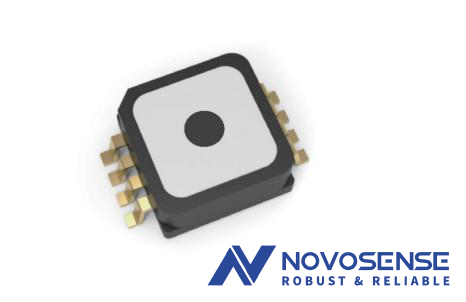Novosense NST1002: High-Accuracy Digital Temperature Sensor for Advanced Applications
- adammiller961

- Oct 24, 2023
- 2 min read
Updated: Oct 2, 2024

An introduction to the Novosense NST1002 digital temperature sensor
In precision-demanding applications like industrial automation, automotive, and medical devices, maintaining exact temperature control is critical. The Novosense NST1002 digital temperature sensor delivers high accuracy, low power consumption, and I2C interface, making it ideal for modern systems that require consistent, reliable temperature monitoring. Let’s explore the technical features and practical applications of this versatile sensor.
Why High-Quality Temperature Sensors Matter
When it comes to selecting a temperature sensor for your next project, you might be tempted to go for an economical option that just "gets the job done." But here's the thing: investing in a high-quality sensor could be a pivotal decision for your product's overall performance. Standard digital sensors might offer acceptable accuracy, but often, this is limited to specific temperature ranges and comes at the cost of higher power consumption. So, let's delve into why the NST1002 by Novosense could be the game-changer you've been looking for.
Thermistor or Digital Temperature Sensor?
The first question that often comes up is whether to opt for a thermistor or a digital temperature sensor. Thermistors are commonly used in medical and industrial applications but come with their own set of challenges. They are prone to self-heating errors and have a non-linear resistance change with temperature. This can make it tricky to get accurate readings across a wide temperature range.
Digital temperature sensors, on the other hand, offer several advantages like better accuracy, stability, and ease of use. The NST1002 stands out in this category, offering high accuracy across a temperature range of -50°C to 150°C. Its 15-bit ADC provides resolutions as precise as 0.0078125°C.

The Novosense NST1002: A Versatile Replacement for NTC Thermistors
The NST1002 isn't just a digital temperature sensor; it's an ideal solution for low-power applications like wireless IoT sensor nodes. It comes in DFN-2L and TO-92S-2L packages and features a unique one-wire interface, allowing for a direct connection to the MCU’s GPIO. This simplifies your hardware design considerably.

One-Wire Communication and Typical Applications
The one-wire interface of the NST1002 offers several advantages:
Single GPIO Usage: Only one GPIO is required, conserving system resources.
Multipoint Temperature Acquisition: All NST1002 nodes can share the same pull-up resistor.
Zero Power Consumption in Standby Mode: Achieved by pulling down GPIO1 after temperature calculation.
Did You Know?
The NST1002 can also be used for Continuous Glucose Monitoring (CGM) measurements. It can adapt its algorithm based on real-time fluctuations in ambient or body surface temperature, making it a versatile choice for medical applications.
Key Features at a Glance
Operating Temperature Range: -50°C to 150°C
High Accuracy: ±0.1°C (typical) to ±0.5°C (max.)
High Resolution: 0.0078125°C (1 LSB)
Quick Response: 32ms temperature conversion time
Ultra-Low Power: <1uA @1 sample/s, zero consumption on standby
Supply Voltage Range: 1.7V to 5.5V

Applications
The NST1002 is ideal for applications where temperature precision and low power consumption are critical:
Wearable devices
Smart Appliances
Grain Monitoring
Two-wire probe
Water Temperature Measurement
Cold Chain Logistics
IoT
Medical
Smart Meter
Final Thoughts
The Novosense NST1002 offers exceptional accuracy and low power consumption, making it a perfect choice for next-generation applications. Interested in learning more? Feel free to contact Ineltek for more information, prices and samples or advice tailored to your specific needs.


